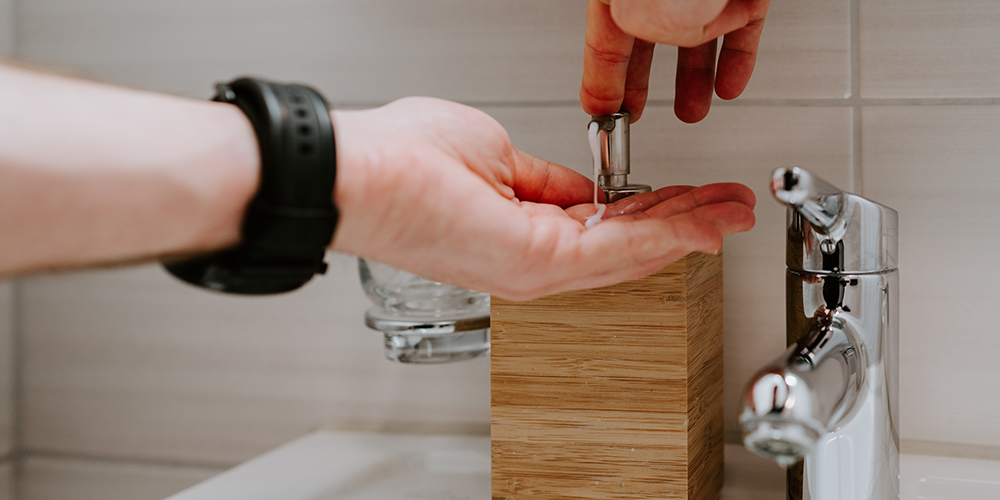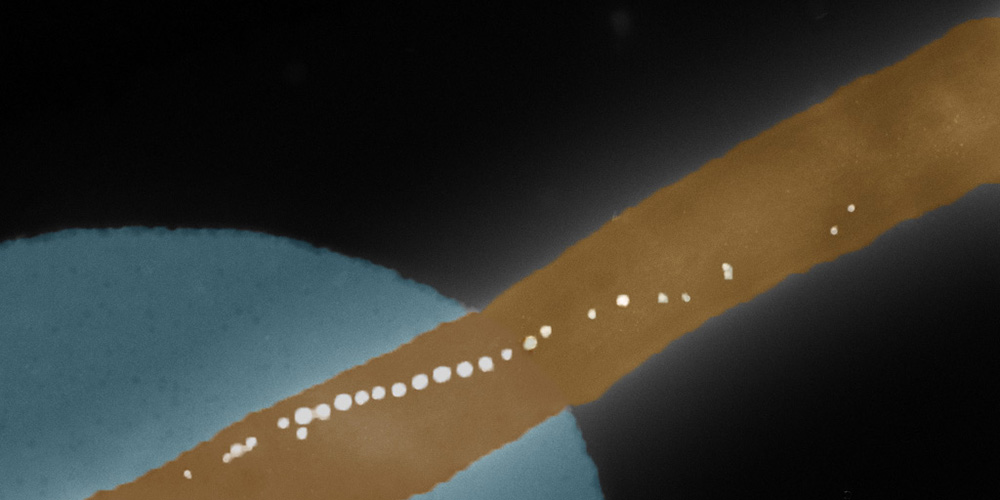Smartwatches may aid future diagnosis and treatment of obsessive compulsive disorder
Technological devices have become constant companions in our daily lives. For the first time, researchers at the University of Basel have now collected data to investigate whether smartwatches can be used to help with compulsive hand washing. Initial results are “cautiously promising.”
04 March 2022
Regular hand washing is important. The pandemic has renewed our awareness of that fact. Since March 2020, YouTube has been filled with hand-washing songs and the Federal Office of Public Health has made detailed information on proper hand washing available on their website. For some people, though, hand washing is more than just a routine hygiene measure: it’s a compulsion that they feel they must comply with for fear of something terrible happening.
Automatic recognition of compulsive hand washing
New technology such as smartwatches may be able to help with obsessive-compulsive disorder (OCD) in the future. In cooperation with computer scientists at the University of Freiburg, psychologists at the University of Basel recently examined this possibility by investigating whether the sensors on standard, commercially available smartwatches can be used to distinguish between routine and compulsive hand washing. “This would be a first step toward using a smartwatch in diagnostics and therapy,” explains lead investigator Dr. Karina Wahl of the University of Basel.
Each of the 21 study participants were trained to follow one of five scripted hand-washing procedures. The procedures were based on descriptions of compulsive hand-washing procedures reported by individuals diagnosed with OCD. Participants were also instructed to wash their hands in a routine way. They wore a smartwatch in both instances. All hand washes were also video-recorded for validation purposes.
A foundation for future research
Analysis of the sensor data showed that the smartwatch was able to distinguish compulsive hand washing with acceptable sensitivity (84%). However, specificity was low: the watch identified only 30% of the non-compulsive hand washing accurately. As this is the first study that has differentiated between routine and compulsive hand washing, the researchers write that they consider these results “cautiously promising.”
“This study should be regarded primarily as a starting point for further research,” says Karina Wahl. Her team is already working on follow-up projects to optimize the use of smartwatches for individuals with OCD. The long-term goal is to develop an app that supports therapists in their work by preventing relapses, fine-tuning individual treatment, and closing the gap between therapy sessions and everyday situations.
An interesting side observation
This first study was conducted before the outbreak of the coronavirus pandemic. Follow-up studies over the past two years show that routine hand washing has changed in this time period. “Previously, the average washing time was 17 seconds; since the pandemic, it is 33 seconds,” Wahl explains. It must be emphasized, however, that this observation is based on a very small dataset. Nonetheless, it seems that the YouTube songs and government campaigns have gotten through.
Original publication
Karina Wahl, Philipp Marcel Scholl, Silvan Wirth, Marcel Miché, Jeannine Häni, Pia Schülin, Roselind Lieb
On the automatic detection of enacted compulsive hand washing using commercially available wearable devices
Computers in Biology and Medicine (2022), doi: 10.1016/j.compbiomed.2022.105280
Further information
Dr. Karina Wahl, University of Basel, Faculty of Psychology, Division of Clinical Psychology and Epidemiology, email: karina.wahl@unibas.ch


